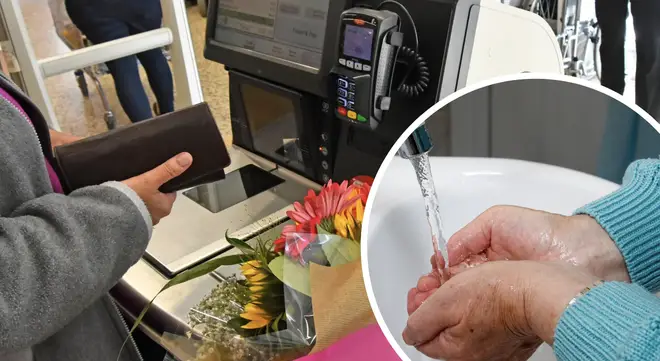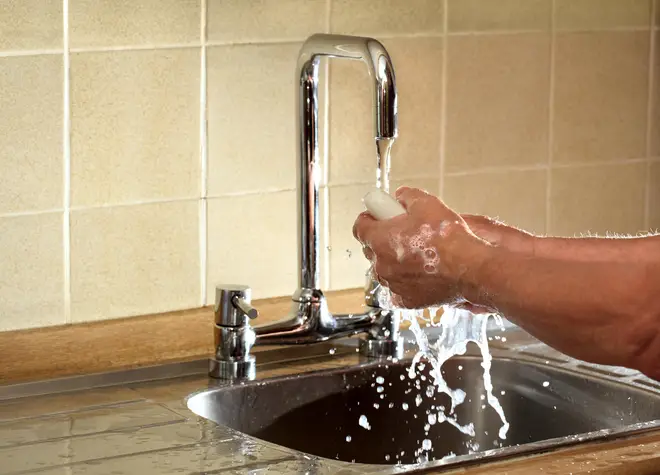
Clive Bull 1am - 4am
9 December 2022, 20:18 | Updated: 9 December 2022, 20:20

Health experts have warned shoppers to wash their hands more regularly over Christmas, after a study revealed the amount of bacteria that lives on self-service checkouts and other objects.
As part of the study, scientists from the Infection Innovation Consortium (iiCON) swabbed several commonly touched objects found in public places.
The researchers found E.coli, a bacteria that can cause diarrhoea and vomiting, on almost all objects that were tested.
Microbes and faeces that can cause urinary tract infections (UTIs) were found on self-checkouts.
And it didn't end there, a fungus known as candida albicans that's is found in the mouth, throat, gut, vagina and can cause yeast infections, was detected on an escalator handrail.
Read more: Favourites Brazil knocked out of World Cup on penalties by Croatia at quarter final stage
They also found intestinal microbes on computer keyboards which can cause a range infections, including urinary tract infections.
Dr Adam Roberts, chief researcher with the iiCON, told the Independent: “The self-checkout samples had one of the highest bacterial loads, as we found five different types of potential disease-causing bacteria surviving on them.
“This included Enterococcus which is found in human faeces and, while this is usually harmless, it can of course lead to disease, particularly in those who may have weakened immune systems.
“We found multiple examples of E. coli and a bacteria called Klebsiella on computer keyboards.
“While both exist naturally in faeces and intestines, given the right environment, they are able to cause quite severe diseases in humans, so it’s vital that we wash our hands before and after eating when working at the computer.”

He also urged Brits to always wash their hands after using the toilet.
“It’s vital to try to minimise their effects in terms of infection prevention and control, so when we touch our mouths or go to the toilet and don’t wash our hands, we’ve likely got bacteria from these places on our hands which can then transfer to other things – and subsequently to other people," he explained.
“If those individuals are more susceptible to infection than you are, there may be a problem.”
Public health partnership Champs Public Health, based in Merseyside, have also called Brits to take extra care over their hand hygiene during over the festive period.
It's part of a wider campaign, Simple Things, that was launched after researchers revealed two-thirds of people are concerned about the spread of infectious diseases this winter.
Matt Ashton, Director of Public Health for Liverpool, said: “These bacteria are completely invisible to the naked eye – surfaces may look clean but can be covered in bacteria.
“But there are simple things we can do to prevent the spread of them and stop the transfer completing its cycle.
“This is particularly important if you are visiting vulnerable relatives in hospitals and care homes, for example."